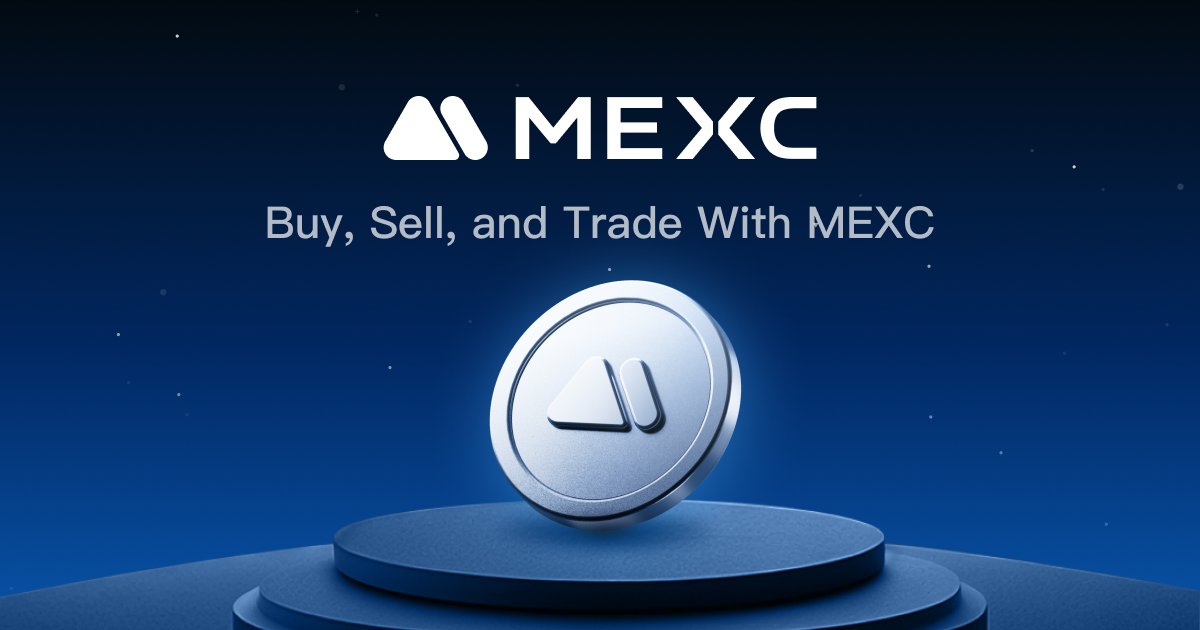
6 minute read
Is MEXC Legal in Germany? What You Need to Know
from MEXC
by Exness_India
When it comes to trading cryptocurrencies in Germany, many investors and traders want to know one crucial question upfront: Is MEXC legal in Germany? The answer to this question is vital for anyone considering using the MEXC exchange platform within German jurisdiction.
This article will give you a straightforward, thorough explanation of MEXC’s legal status in Germany, along with important considerations for traders, regulations affecting crypto exchanges, and what to expect when using MEXC from Germany.

✅ Trade with MEXC now: Open An Account 👈
What is MEXC?
MEXC, formerly known as MXC, is a global cryptocurrency exchange platform offering a wide range of digital assets for trading, including spot trading, futures, and leveraged tokens. It has gained popularity for its user-friendly interface, extensive coin listings, and advanced trading tools. However, as with many global crypto exchanges, understanding whether MEXC operates legally in specific countries like Germany requires knowledge of local laws and regulatory frameworks.
The Legal Landscape for Crypto Exchanges in Germany
Germany is one of the leading countries in Europe when it comes to cryptocurrency regulation. The country treats cryptocurrencies as financial instruments and has a strict regulatory environment to protect investors and maintain financial market integrity.
The Federal Financial Supervisory Authority (BaFin) is the main regulatory body overseeing financial institutions and crypto-related activities in Germany. BaFin’s regulations require that cryptocurrency exchanges operating in Germany must obtain appropriate licenses to operate legally. This includes compliance with anti-money laundering (AML) laws, customer due diligence, and maintaining proper security standards.
Is MEXC Licensed in Germany?
As of now, MEXC does not hold a specific license from BaFin to operate directly within Germany. This means that MEXC is not officially registered as a financial service provider under German law. The absence of a BaFin license implies that MEXC is not formally authorized to offer its services to German residents through a local branch or subsidiary.
However, it’s important to note that many international exchanges operate globally without specific local licenses but still provide their services across borders. This practice, while common, places the responsibility on users to understand their own country’s laws regarding cryptocurrency trading.
Can Germans Use MEXC?
Despite the lack of an official BaFin license, German residents can still access and use MEXC. The platform does not explicitly block German IP addresses or users from registering accounts or trading. Many German traders use MEXC for its variety of coins and features not always available on local or EU-licensed exchanges.
But here’s the catch: using MEXC from Germany comes with legal and financial risks. Since MEXC is not regulated locally, German users do not receive the same level of consumer protection offered by regulated platforms. For example, if the exchange encounters insolvency issues or suffers a security breach, users may have limited or no legal recourse under German law.
Risks of Using Unlicensed Exchanges in Germany
Using an unlicensed exchange like MEXC carries multiple risks:
Regulatory Risk: BaFin can take enforcement action against unlicensed operators or users violating financial regulations. Though this is rare for end-users, regulatory policies can evolve and restrict access suddenly.
Security Risk: Licensed exchanges are required to follow stringent security protocols. An unlicensed exchange may not be held to the same standards, potentially putting user funds at risk.
Legal Uncertainty: In case of disputes, German users may find it difficult to pursue legal claims against the exchange, especially if MEXC is headquartered in a foreign jurisdiction.
Tax Compliance: German users must still comply with tax reporting for cryptocurrency transactions. Using unregulated platforms may complicate proper documentation and reporting to tax authorities.

✅ Trade with MEXC now: Open An Account 👈
How Does BaFin Regulate Crypto Exchanges?
Understanding BaFin’s approach provides clarity on why licensing matters. BaFin regulates crypto exchanges primarily under the German Banking Act (KWG) and the German Money Laundering Act (GwG). Exchanges must apply for a license to operate as a financial service institution.
The licensing requirements include:
Proof of sufficient capital.
Compliance with anti-money laundering measures.
Strong customer identity verification (KYC).
Security measures to protect user assets.
Transparent operational and financial structures.
Exchanges failing to meet these standards cannot legally solicit or accept German customers. BaFin has taken action in the past to block access to unauthorized exchanges.
Alternatives to MEXC for German Traders
If legal compliance and security are your priority, consider trading on BaFin-licensed exchanges that operate within Germany or the European Union. Some reputable platforms include:
Bitpanda: An Austrian-based exchange fully licensed under EU laws, offering a wide range of crypto assets.
Coinbase: Licensed in multiple jurisdictions, including EU countries, providing strong regulatory compliance.
Kraken: Complies with EU regulations and offers services to German users.
Bison: A German app developed by Boerse Stuttgart, fully regulated and user-friendly for domestic traders.
These exchanges provide peace of mind regarding compliance with German financial regulations and consumer protection.
What Should German Traders Do When Using MEXC?
If you decide to use MEXC despite the lack of BaFin licensing, here are essential tips:
Perform thorough due diligence: Understand MEXC’s policies, security measures, and reputation.
Use strong security practices: Enable two-factor authentication and store funds safely.
Keep detailed transaction records: This is crucial for tax reporting and potential audits.
Stay updated on regulations: Crypto laws are evolving, and it’s essential to remain informed about any changes affecting crypto trading in Germany.
Consider withdrawing large holdings: To personal wallets where you control private keys for enhanced security.
The Future of MEXC in Germany
Regulation of cryptocurrency exchanges in Germany is expected to tighten further as the EU implements the Markets in Crypto-Assets (MiCA) regulation. MiCA will standardize crypto asset regulations across EU member states, including Germany.
Under MiCA, exchanges like MEXC might find it easier to apply for licenses across the EU, including Germany, if they comply with the new framework. This could potentially change MEXC’s legal status in the future, making it a licensed operator in Germany.
Until then, MEXC remains an unlicensed but accessible exchange for German users, operating in a legal grey area.
Summary: Is MEXC Legal in Germany?
MEXC does not currently hold a BaFin license in Germany.
German users can access MEXC but with legal and security risks.
BaFin regulates crypto exchanges strictly; licensed exchanges offer better protection.
Using unlicensed platforms may complicate legal recourse and tax compliance.
Consider regulated exchanges if you prioritize security and legality.
Future EU regulations (MiCA) may change MEXC’s status in Germany.
Final Thoughts
For anyone asking, "Is MEXC legal in Germany?" the clear answer is: MEXC operates without a German license, which means it’s not officially legal under German financial laws, but it remains accessible to users. This situation places the responsibility on you, the trader, to weigh the convenience of using MEXC against the risks of using an unregulated platform in Germany.
If you choose to proceed with MEXC, always stay informed, practice strong security habits, and ensure you comply with German tax laws. For those who want full legal protection and peace of mind, using a BaFin-licensed or EU-regulated crypto exchange is the safer path.
✅ Trade with MEXC now: Open An Account 👈
Read more:








